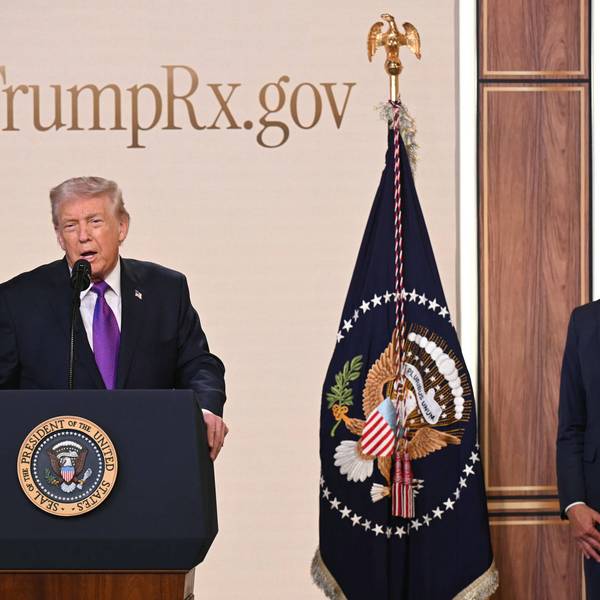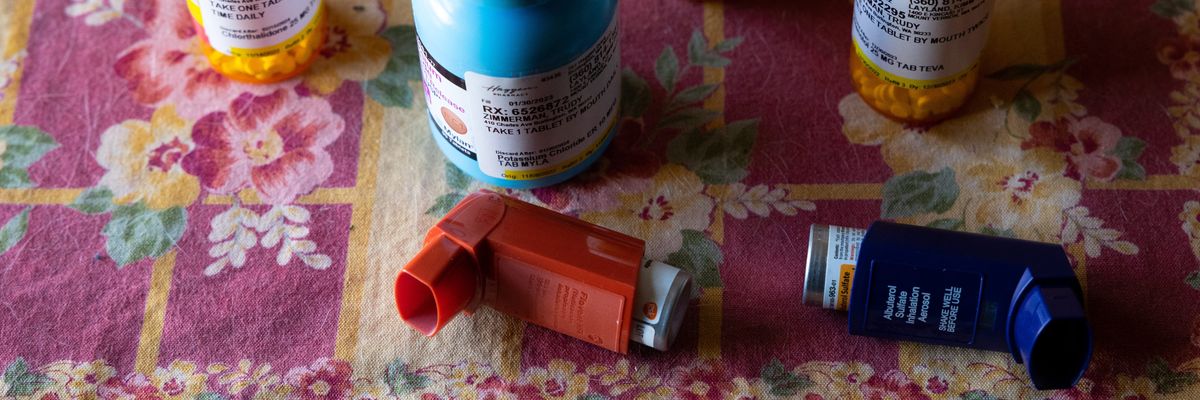Starting in June, the German pharmaceutical giant Boehringer Ingelheim will cap co-pays for its inhalers at $35 for U.S. patients—a decision that came just two months after members of a Senate panel led by Sen. Bernie Sanders launched an investigation into inhaler price gouging.
Combivent Respimat, one of Boehringer Ingelheim's inhaler products, carries a list price of around $500 in the U.S. That's roughly 70 times what the company charges for the same product in France, where patients can get the inhaler for $7.
Boehringer Ingelheim said Thursday that it plans to reduce the list prices of some of its inhalers.
Sanders (I-Vt.), chair of the Senate Health, Education, Labor, and Pensions (HELP) Committee, called the company's moves "very positive steps in the right direction" and demanded that other major inhaler manufacturers "take similar action."
"A Vermont resident recently told my office that she has to pay $320 per month for Boehringer Ingelheim's Spiriva HandiHaler. As a result of today's decision, she could save more than $3,000 a year on the inhaler that she needs to breathe," Sanders said in a statement Thursday. "If Boehringer Ingelheim can take action to cap the cost of inhalers at $35 in the United States and lower the list price of some of the inhalers it manufactures, these other companies can do the same."
In January, Sanders and other Senate HELP Committee members announced a probe into "the extremely high prices" that Boehringer Ingelheim, AstraZeneca, and other companies charge for their inhalers.
"We launched an investigation into big drug companies because the prices they were charging for inhalers just didn't add up," Sen. Tammy Baldwin (D-Wis.), a member of the HELP panel, wrote on social media Thursday. "And looks like we were right."
Boehringer Ingelheim was also facing scrutiny from the Federal Trade Commission (FTC). In November, the agency said it believes some of the company's patents "may have been improperly listed in the Orange Book," which includes products the agency deems safe and effective.
"Patents improperly listed in the Orange Book may delay lower-cost generic drug competition," the FTC wrote in a letter to Boehringer Ingelheim. "By listing their patents in the Orange Book, brand drug companies may benefit from an automatic, 30-month stay of FDA approval of competing generic drug applications."
On Wednesday, as Reuters reported, a class-action lawsuit filed in federal court by the Massachusetts Laborers' Health and Welfare Fund accused Boehringer Ingelheim of "improperly submitting patents to the U.S. Food and Drug Administration to delay generic competition and inflate prices for its lung disease drugs Combivent Respimat and Spiriva Respimat."
"As a result of Boehringer's wrongful Orange-Book-listing scheme, there [are], to this day, no affordable generic versions of either Combivent Respimat or Spiriva Respimat," the lawsuit states. "Payors must continue to pay for expensive brand-name products, instead of affordable generic products that should have been available years ago. This has caused payors, including the plaintiff, to suffer many millions, if not billions, of dollars in overcharges over the past three years."




